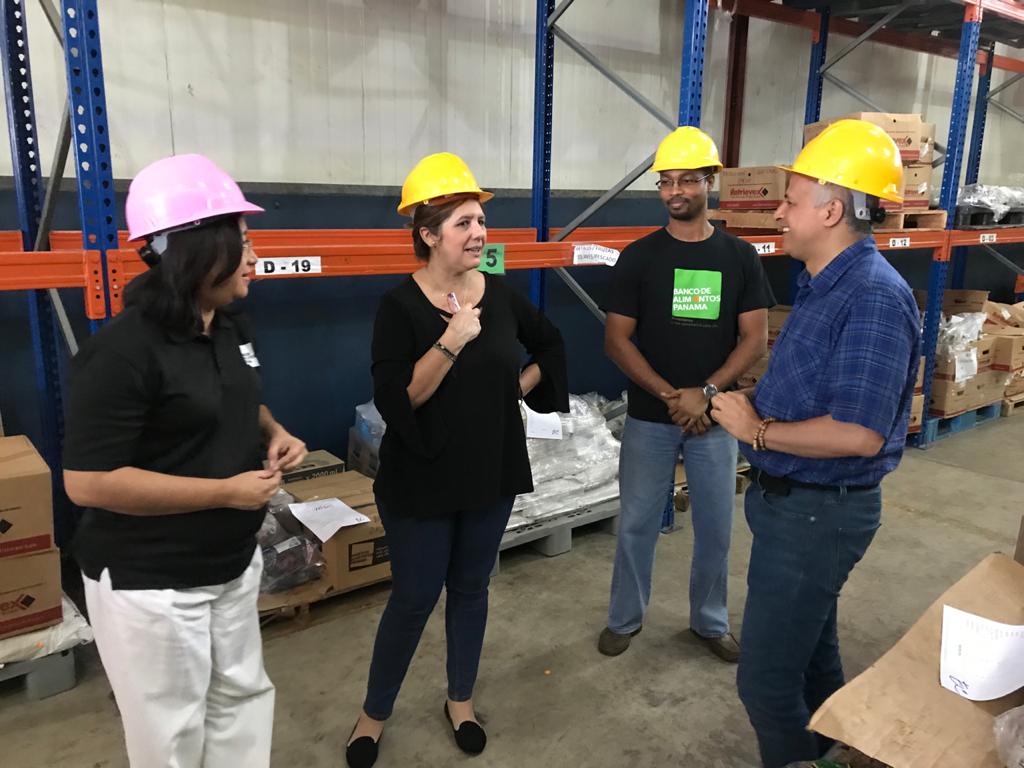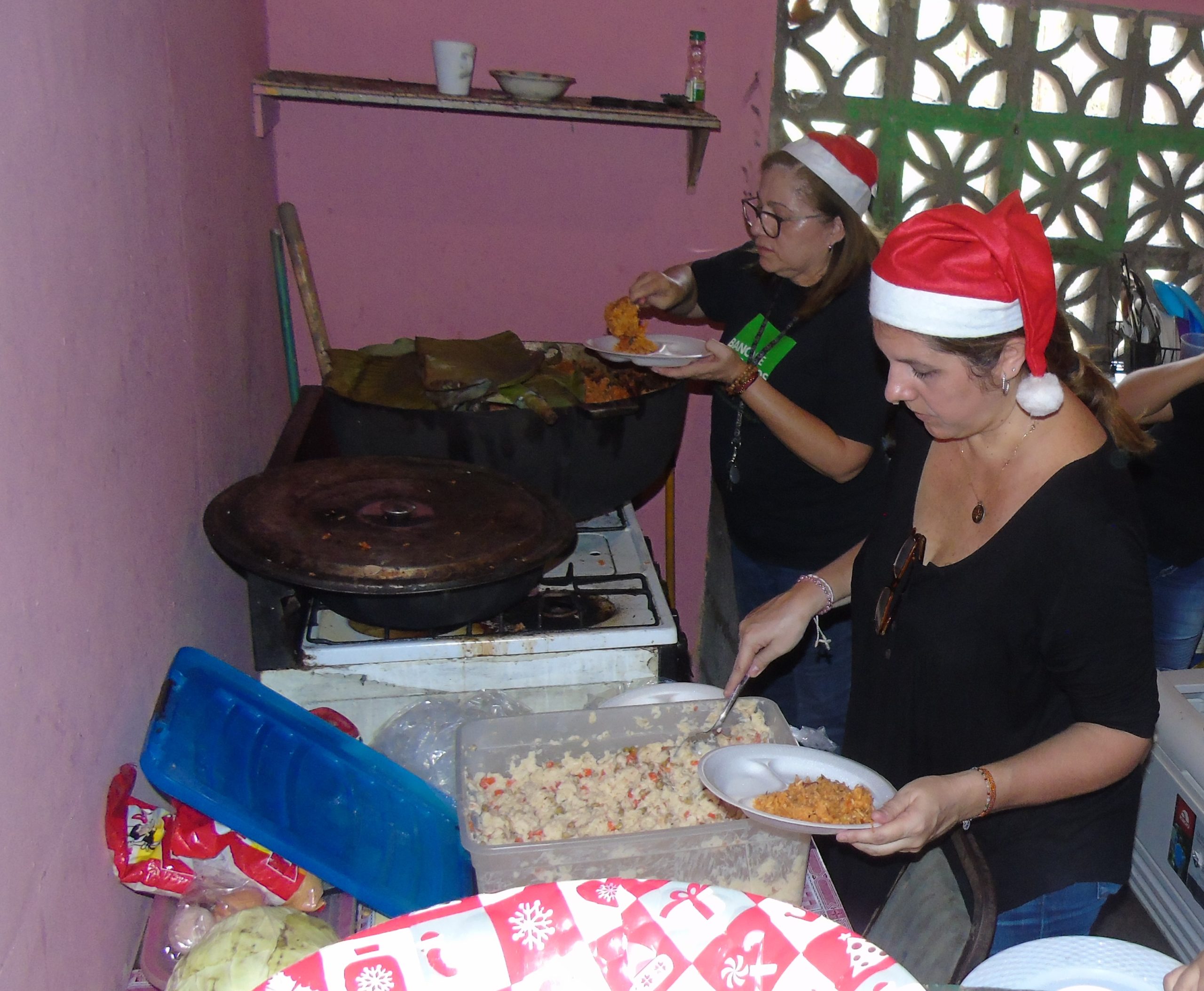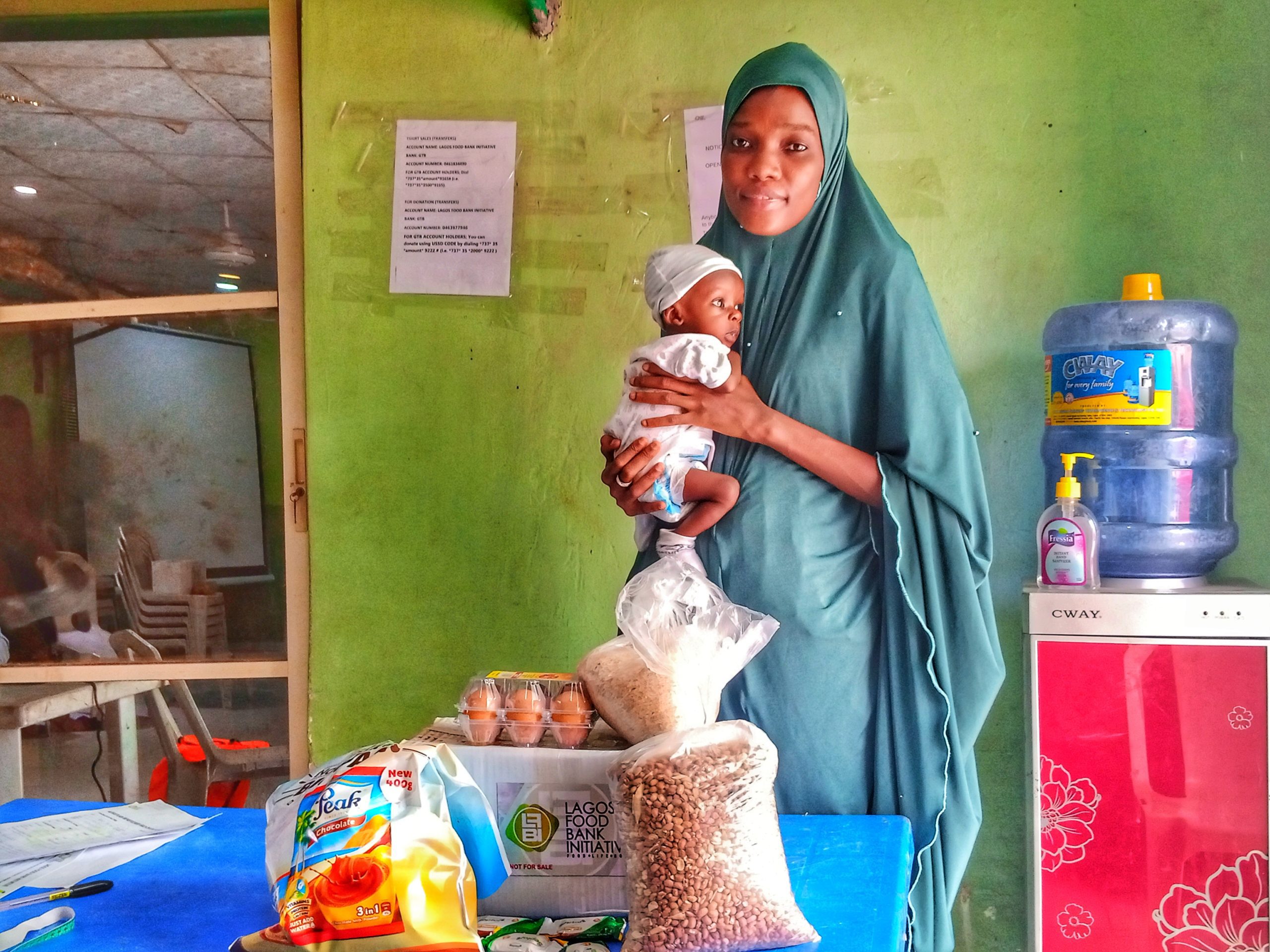By Katie Lutz
An Interview with Ana Isabel Méndez, Executive Director, Banco de Alimentos Panamá
This year, International Women’s Day is celebrating the important role played by women leaders in pandemic response and recovery efforts. GFN took this opportunity to sit down with Ana Isabel Méndez, executive director of Banco de Alimentos Panamá, and a leader within our Network.

GFN: Tell us about your background. How did you come to lead Banco de Alimentos Panamá?
Ana Isabel Méndez: I studied law in university and then worked towards a master’s degree in Business Administration and Finance. After working for more than 20 years in the Panamanian banking sector, in 2015 I was given the opportunity to take over the leadership of Banco de Alimentos Panamá (BAP). In this role, I am responsible for leading the operations of the food bank and ensuring that all administrative, financial, and operational matters are conducted appropriately. In addition, I make sure that the team is motivated and trained, so that we reach our goals Working with my staff is one of the most satisfying parts of my job. Oh, and I am also a wife and mother of three children!
GFN: Tell us more about Banco de Alimentos Panamá and the work your team is currently doing?
AIM: BAP was founded in 2014 as an initiative to combat hunger and malnutrition in Panama. It is a nonprofit organization, dedicated to the rescue of food. Food and other grocery products are rescued and delivered to community service organizations which help communities and people living in food insecurity. In just six years, we have managed to rescue more than 11,000 tons of food and reached about 221,000 people through more than 500 organizations across the country.
GFN: What made you decide to work in food banking?
AIM: Social justice work has always been important to my family; for this reason, when I was given the opportunity to lead a nonprofit organization with the mission to fight hunger and malnutrition, I didn’t hesitate for a second. I was very aware of the sad reality of hunger and food insecurity in my country so was grateful for an opportunity to contribute to fighting it.

GFN: Tell us about the first time you saw the devastating effects of hunger.
AIM: When I was younger, I volunteered for various social initiatives with different NGOs where I had the opportunity to see the impact of hunger on children, women, and the elderly. I have also seen how the lack of opportunities, inequality, and government indifference can deeply impact the lives of people living in vulnerable situations. On one occasion, I was able to help families living in very remote villages get food. Seeing these communities abandoned by government and society, shocked me deeply.
GFN: What women have inspired you to do the work you do and why?
AIM: In my life there have been several women who have inspired me. One is my maternal grandmother, a tenacious, enterprising, and very brave woman, who raised four children, one of them with disabilities, all while dedicating much of her life to serving others. There is also my mother, for her strength and sacrifice of raising us with values and principles and giving us an example of honesty and hard work in everyday life.
And lastly, all the women–grandmothers, mothers, sisters, daughters–who everyday struggle to put a plate of food on the table, teach values by example, and fight to build a fairer and more equitable society.
GFN: Women currently stand at the front lines of the COVID-19 crisis, as health care workers, caregivers, innovators, and community organizers. However, while many women are part of the solution, COVID-19 has been especially harmful for mothers and women in communities around the world. How has COVID-19 impacted the women in your community facing hunger?
AIM: 2020 was an incredibly challenging year for women in Panama. Most women in Panama work in sectors that were negatively impacted by COVID-19 and many women lost their jobs. Female heads of household, indigenous women, and informal workers all saw their incomes partially or completely affected by the pandemic. Similarly, job opportunities decreased for young women, raising the unemployment rate significantly.
The COVID-19 crisis has highlighted the fundamental importance of women’s contributions and the disproportionate burdens they bear. The pandemic has brought new barriers, in addition to those of a social and systemic nature that persisted before, such as increased domestic violence, unpaid domestic work, unemployment, and poverty. However, by providing women with the necessary tools for their personal and professional growth, they can break the cycle of poverty and provide food for their families, thus combating malnutrition and food poverty in their communities.
Despite all the challenges, many women had the opportunity to act on the front lines of COVID-19. Women served as leaders of organizations working on issues such as food, human rights, health, and education. Women led the procurement of food to people and conducted trainings in health and nutrition issues. 51 percent of the organizations we served in 2020 were led by women.
GFN: Why is International Women’s Day important to you?
AIM: International Women’s Day shouldn’t be just one day; it should be every day of the year. But it is important to have this moment to recognize the efforts of women who dare to fight injustice and discrimination. I believe International Women’s Day demonstrates that women are key players in the development of nations, both socially and economically. That is why we must continue to use our voices to demand our rights, and build a more just and equitable society.
GFN: This year’s International Women’s Day theme is “Women in leadership: Achieving an equal future in a COVID-19 world”. What do you think is the relationship between having female leaders and building a gender-equal world?
AIM: Historically, we have seen that having women in leadership positions promotes policies and initiatives that drive the development of other women and vulnerable groups, and promote fairer, more egalitarian societies with greater opportunities for all.
The need for women leaders is even more critical at this time when the world is facing the socio-economic crisis caused by COVID-19. Women leaders are needed to promote changes in key issues, such as health, education, employment, governance, and gender-based violence.

GFN: As a female leader, how do you encourage and inspire women to become hunger changemakers?
A: Every woman can play an important role in the fight to eradicate hunger, whether she contributes from her work, her home, or her community. As the leader of a nonprofit organization dedicated to combating hunger and malnutrition, I am convinced that all people can contribute to this mission. I believe in leading by example, to inspire and motivate others to work with tenacity, firmness, and integrity to reduce hunger and inequality in our communities.
GFN: If you could communicate one message to a young girl who wants to make a difference in the world, what would it be?
AIM: I would tell her to seek strength in unity, set aside differences, and fight with determination for common goals, such as gender equality, fair pay, equitable distribution of unpaid domestic work, an end to all forms of violence against women and girls, health services that meet women’s needs, and the right to participate in decision making, to create policies and laws in all walks of life, and to build a better world together.
Learn more about Ana Isabel Méndez and the work of Banco de Alimentos Panamá.

